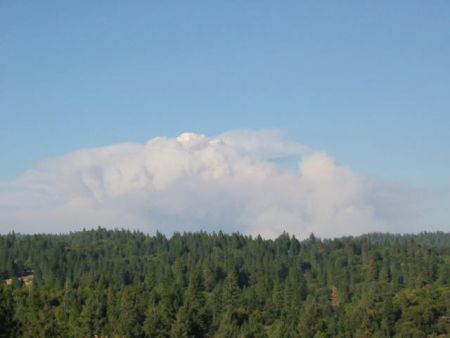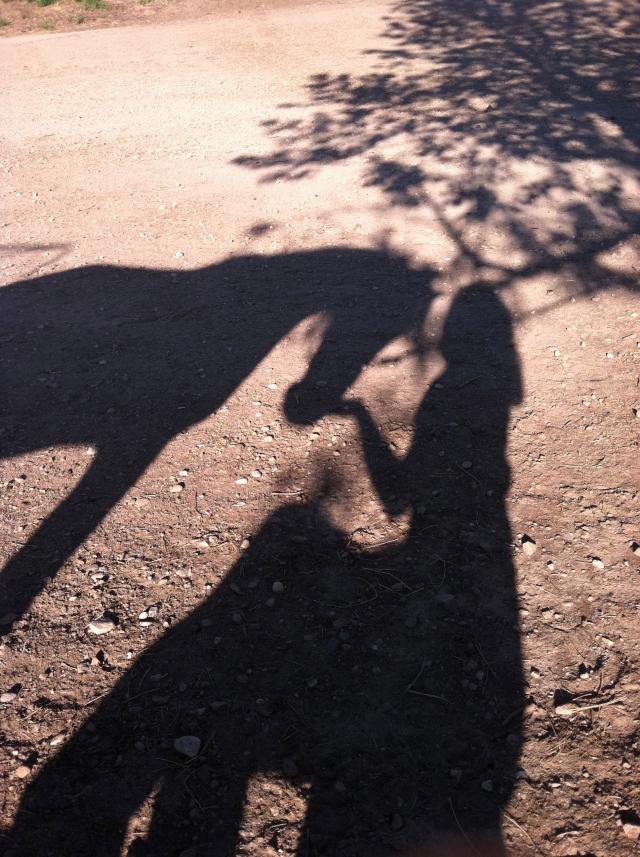Growing up in rural northeast Lower Michigan, wildfires were a reality. I say this humbly, as the reality was not nearly as harsh as life in the western states during fire season. Nonetheless, it’s important for every horse owner in every region to have a plan in the case that disaster strikes. Since summer is nearing, it’s time to review some wildfire safety tips.

Prioritize.
You and your family come first, no matter what. Next, although it’s hard to think about, if you have a three-horse trailer and five horses, you’re going to have to decide which are set free to escape themselves from the fire and which ones you keep. Even if you have a six horse trailer, you’re still going to have to decide order of go in the case that you don’t have time to load all five. Will you load the horses that are most keen on getting into the trailer first?
Plan Your Escape.
My mother never let me go to sleep without being sure that the path from my bed to my doorway was clear in the case of a fire. Likewise, always have a sure path to safety for you, your family, and your horses. Route the different ways to get to safety. Have a destination in mind where you are able to keep your horses; maybe it’s your uncle’s place across the river or your old riding buddy’s house 6 hours away. It will be important to move swiftly; any time spent deciding on where to go could be preciously spent doing other things. If you do not have a place where you can show up on a moment’s notice with horses, be educated on your city’s plan for evacuees. They often make arrangements for people and their pets at the fairgrounds or another facility away from the threat of fire.
Be Prepared.
Be sure to leave the truck with plenty of gas in the tank during fire season. Keep up on regular truck and trailer maintenance so that you’re able to leave when you need to. There is no luck in catastrophe. Everything must be prepared. Create a horse ID folder to be able to prove ownership of your horses, especially if you will be utilizing a facility established for many evacuees and their pets. Helpful information in the packets includes vaccine records, registry paperwork, Coggins, and photos of the horses.
Lists.
Make lists of what you will need to take with you. Buckets, medications, hoof picks, hoof boots, halters and leads, fly spray, blankets, flashlights, horse paperwork, water, hay, and a…
Horse Emergency Kit.
If you don’t already have one of these, it’s time to build one. You can expect to spend between $100 and $150 for a really great kit. Here are some items to get you started:
- Bandages
- Gauze
- Antiseptic
- Peroxide
- Phenylbutazone
- Medicated shampoo
- Eye flush
- Soaking boot
- Epsom salt
- Scissors
- Thermometer
- Roll cotton
- Safety pins
- Bandage tape

Reach Out.
Do you have neighbors with horses? If so, a collaborative escape effort may prove to be efficient. If someone has a large trailer, you may be able to ship out the other two horses that couldn’t fit into your three-horse trailer. You can also allocate chores such as packing hay and the neighbor being sure to bring enough water. The number one way to managing and surviving a crisis is to be prepared. This plan takes little time to put together and could be life-changing.

On the next day that it’s too rainy to ride, sit down with your horse family and maybe the neighbors and develop a plan. It’s important to your friends at EasyCare that you and your horse’s are safe this season.
Mariah Reeves

Customer Service
As one of the customer service representatives, I am happy to help get your horse into the right boots. I promote holistic methods of equine care and will assist you with finding the perfect fit for horse and rider.




